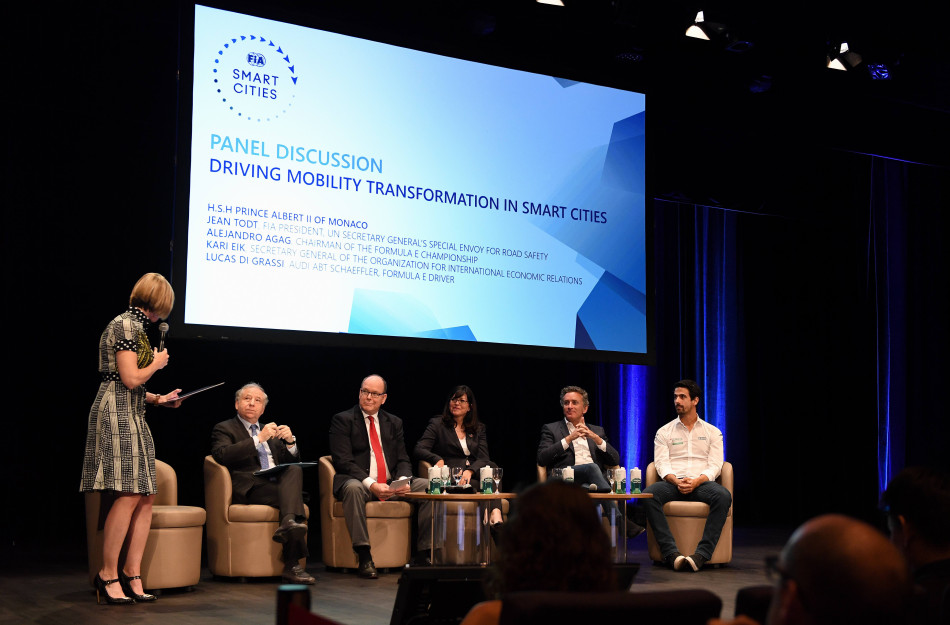Driving Transformation and Development in Smart Cities
On Friday, 10 May, Monaco welcomed a high-level panel discussion on Sustainable Urban Mobility organised on the occasion of EVER Monaco and the Formula E race.

H.S.H. Prince Albert II of Monaco, FIA President Jean Todt, Founder and CEO, and newly appointed Chairman of Formula E Holdings Alejandro Agag, Secretary General of the Organization for International Economic Relations Kari Eik and Formula E Driver for Audi Sport ABT SchaefflerLucas di Grassi discussed the development of mobility in smart cities, as well as the role of new technologies and other actionable solutions that can help address pressing challenges in today’s urban environments.
Panellists shared insights about both local and global solutions for urban mobility, pointing to the importance of cross sectorial cooperation in delivering more efficient and sustainable transportation. The role of public policies in defining a right balance between conventional and new mobility services was also discussed. “We need to develop an integrated approach for smart and sustainable cities that offer mobility solutions to all users. Governments should create enabling environments for more resilient infrastructure, information technologies, digital services, and safety measures. Smart cities go beyond technological advancement – safety and inclusiveness are at the heart of the concept,” said President Todt.
The need for effective partnerships was further presented through the United for Smart Sustainable Cities (U4SSC) initiative which aims at measuring the baseline and progress of the development of smart cities. “The challenge we face today is to establish a balance between innovative services and products and existing urban ecosystems. Lots of technologies can contribute to decreasing overcrowding, reducing congestion and improving air quality. In order to derive optimal benefits from innovations in transport, robust measurement and evaluation systems should be put in place. Our target is to build smart cities across the social, environmental and sustainability pillars” explained Kari Eik.
His Serene Highness Prince Albert II of Monaco pointed to the crucial role of sustainable energy sources in unlocking smart mobility solutions. “Making the right decisions in terms of infrastructure is a primary target. We have to anticipate a future of increasingly connected, autonomous and electrified mobility, where a sustainable energy mix will become a key enabler of all these emerging trends”.
A special attention was paid to the role of the ABB FIA Formula E Championship — of which the Prince Albert II of Monaco Foundation has been one of the official foundation partners — in shaping the vision of future mobility. The fully electric city circuit series showcases the technological capacity of electric powertrain and its benefits for urban environments. “Policy-makers and urban developers need to start planning now for the transport of the future”, explained Alejandro Agag. “Formula E is a true laboratory for innovations that can help reach sustainability targets”.
Lucas di Grassi, with his double hat of a Formula E driver and UNEP Ambassador, pointed to the link between transportation and the global CO2targets. “Traffic-related air pollution can be significantly reduced if cities adopt more robust smart grid networks and electrified public transportation. We are racing today to raise awareness about the future of mobility in our cities”.

 Facebook
Facebook Twitter
Twitter






